Sixty Glorious Years [Queen of Destiny, Queen Victoria] (1938)
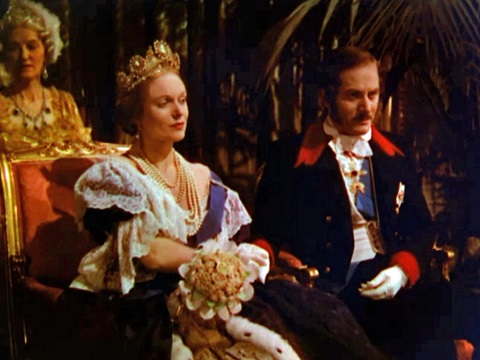
Toronto Film Society presented Sixty Glorious Years (1938) on Monday, July 9, 1984 in a double bill with Fire Over England as part of the Season 37 Summer Series, Programme 1.
Production Company: Imperator (distributed by RKO Radio). Producer: Herbert Wilcox. Director: Herbert Wilcox. Screenplay: Charles de Grandcourt, from an original screen story by Sir Robert Vansittart and Miles Malleson. Photography: Frederick A. Young. Colour by Techincolor.
Cast: Anna Neagle (Queen Victoria), Anton Walbrook (Prince Albert), Sir C. Aubrey Smith (Duke of Wellington), Walter Rilla (Prince Ernest), Charles Carson (Sir Robert Peel), Grete Wegener (Baroness Lehzen), Felix Aylmer (Lord Palmerston), Lewis Casson (Lord John Russell), Pamela Standish (Princess Royal), Gordon McLeod (John Brown), Stuart Robertson (Mr. Anson), Olaf Olsen (Prince Frederick of Prussia), Henry Hallatt (Joseph Chamberlain), Wyndham Glodie (A.J. Balfour), Malcolm Keen (W.E. Gladstone), Frederick Leister (H.H. Asquith), Derrick de Marney (Benjamin Disraeli), Marie Wright (Maggie), Joyce Bland (Florence Nightingale), Frank Cellier (Lord Derby), Laidman Browne (General Gordon).
A sumptuous view of the reign of Queen Victoria, who made herself so much a part of our lives that we still celebrate Her birthday more than four generations after Her death. Coming in 1837 as a young, inexperienced girl from a minor German principality to take the throne of the greatest empire, in size and population, that the world has ever known, She rose to the challenge as was loved by Her people to a degree almost unparallelled in history. The revolutionary wave which swept Europe in 1837-41 did not raise a ripple in Britain. She had a profound effect on Her country, presenting Her views forcefully to a long succession of prime ministers, at least one of whom had not even been born when She took the throne. She also quite consciously used Her person al life and character to influence Her subjects by example. A great believer in the worth of the family, She raised a large one with great dedication, and family life and morality were never stronger in the Empire than during Her reign. She was a woman of imposing dignity, but Her grandchild, Princess Alice, in the filmed interview “A Victorian Memory,” emphasized Her hearty sense of humour and that She never said “We are not amused.” The movie opens with Her marriage to Prince Albert, despite fierce opposition in England, beginning one of the great love stories of history. The one occasion when Her government bested Her was its refusal to allow Her to crown him King. His untimely death caused Her to retire into deep mourning for the rest of Her life, which was increasingly resented by Her loving subjects, and “The Mother Queen” became “The Widow of Windsor.” She was one of the few monarchs in History to celebrate a Diamond Jubilee of reign (in 1897), and Her death in 1901 was marked throughout the world as the end of an era. Her statue stares firmly down University Ave from Queen’s Park, which is named for Her.
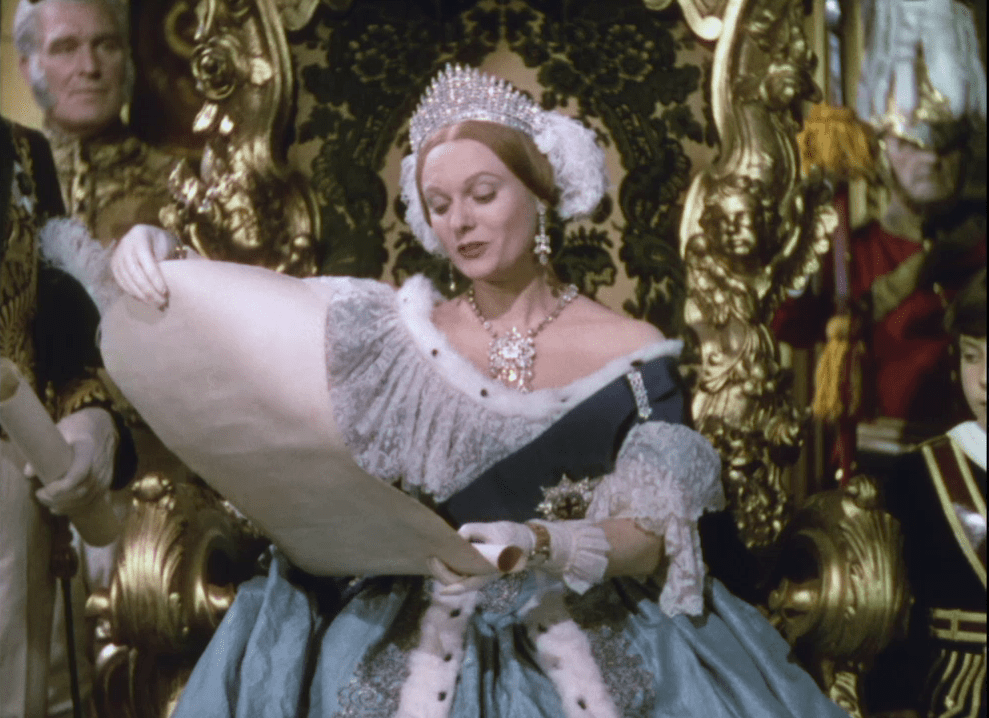
Sixty Glorious Years was made the year following Herbert Wilcox’s international triumph with Victoria the Great, and many of the same people worked in it. It is, I think, absolutely unique among movies in being, not a sequel or prequel to the earlier picture, but simply another view of the same story. There were so many things in Victoria’s eventful reign that Wilcox had not had time to cover, that he wanted to make this second picture covering the same period and with the addition of colour.
Anna Neagle, Wilcox’ wife, is one of the best-loved actresses in Britain. Her celebrated “aging” in both pictures is justly famous. It was one of her greatest roles, not less so because she picked up the gauntlet thrown to the world by Helen Hayes in Laurence Houseman’s play Victoria Regina. Another of her most famous roles was Florence Nightengale in The Lady With the Lamp. Years later, in a gesture worthy of Victoria, she placed all of her resources at the disposal of Herbert Wilcox when he was facing bankruptcy. During one of her visits to Toronto, she was the guest of the Nostalgia Film Society, and has remained a faithful correspondent of Bob Smith, one of that society’s founders.
Of Anton Walbrook, one critic wittily said that he played with such elegance as to suggest that Prince Albert had married beneath him. The remainder of the cast is loaded with the cream of British character actors, including Charles Carson, whom we have just seen in Fire Over England, and there is a rare movie appearance by the distinguished stage actor Malcolm Keen, whose son Geoffrey has had a sizable career in British movies and TV. Even the original screen story was co-authored by a famous character actor, Miles Malleson.
While some critics have compared Sixty Glorious Years unfavourably with Victoria the Great, “E.P.,” in Monthly Film Bulletin of October 31, 1938, takes the opposite view: “A magnificent, satisfactory and satisfying successor to Victoria the Great. . The treatment is necessarily and in evitably episodic, but the incidents are admirably chosen, and the balance is skilfully kept between pageantry and human interest. . . . The acting of the whole cast is impeccable. Anna Neagle’s Victoria is a thing of beauty. She brings out her wilfulness, her occasional arrogance, her protective love for her husband, her essential queenliness. We see the Queen aging gradually, passing through her broken-hearted widowhood, and keeping always dignity and sympathy for others. The keynote of Anton Walbrook’s Prince Consort is sincerity. It is an even better performance–as is Anna Neagle’s–than in the earlier film. It would be difficult for either to be improved on. The supporting players are all so good that it would be invidious to single out individuals.”
Notes by Ron R. Anger

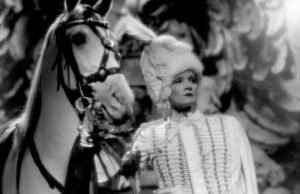
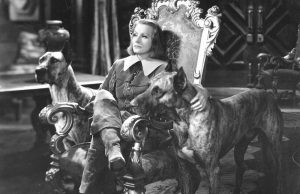
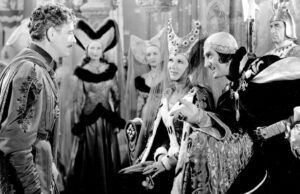






Leave a Reply